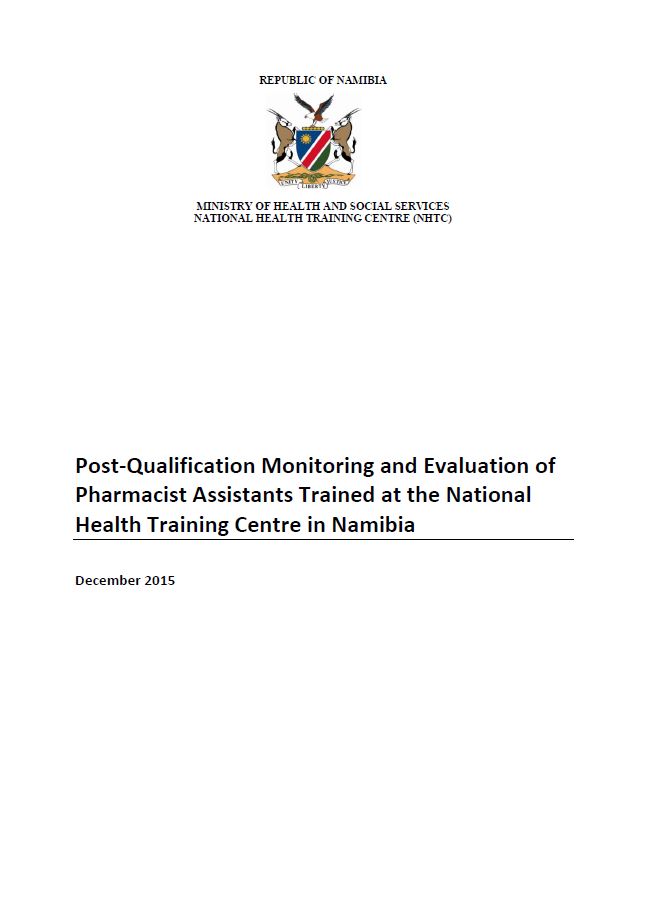
Namibia has a decentralized public health system with 14 administrative regions. It is challenged by a dual burden of HIV and AIDS and tuberculosis (TB) as well as by the persistent shortage of pharmaceutical personnel. Well-trained pharmacist assistants (PA) are central to ensuring that the correct medicines are available in sufficient quantities as well as for counseling patients on the proper use of medicines and monitoring patients’ adherence to antiretroviral therapy (ART) and other treatments. The National Health Training Centre (NHTC) has conducted this first formal workplace assessment of PAs who have graduated from the institution since 2007 in response to support from the US Agency for International Development (USAID) for a series of systematic interventions to strengthen the capacity and quality of PA training. Broadly, the USAID-funded SIAPS program supported the NHTC to conduct a tracer study to inform strategies for improving the PA training program and its reaccreditation by the Namibia Qualifications Authority (NQA). Specifically, the study assessed: the proportion of NHTC PA graduates who are working in a PA role; the PAs’ satisfaction with the training they received at the NHTC; employers’/supervisors’ satisfaction with the PAs’ services; and strengths and weaknesses of the PA training program. Stakeholders’ recommendations for improving the PA training program were also obtained.


